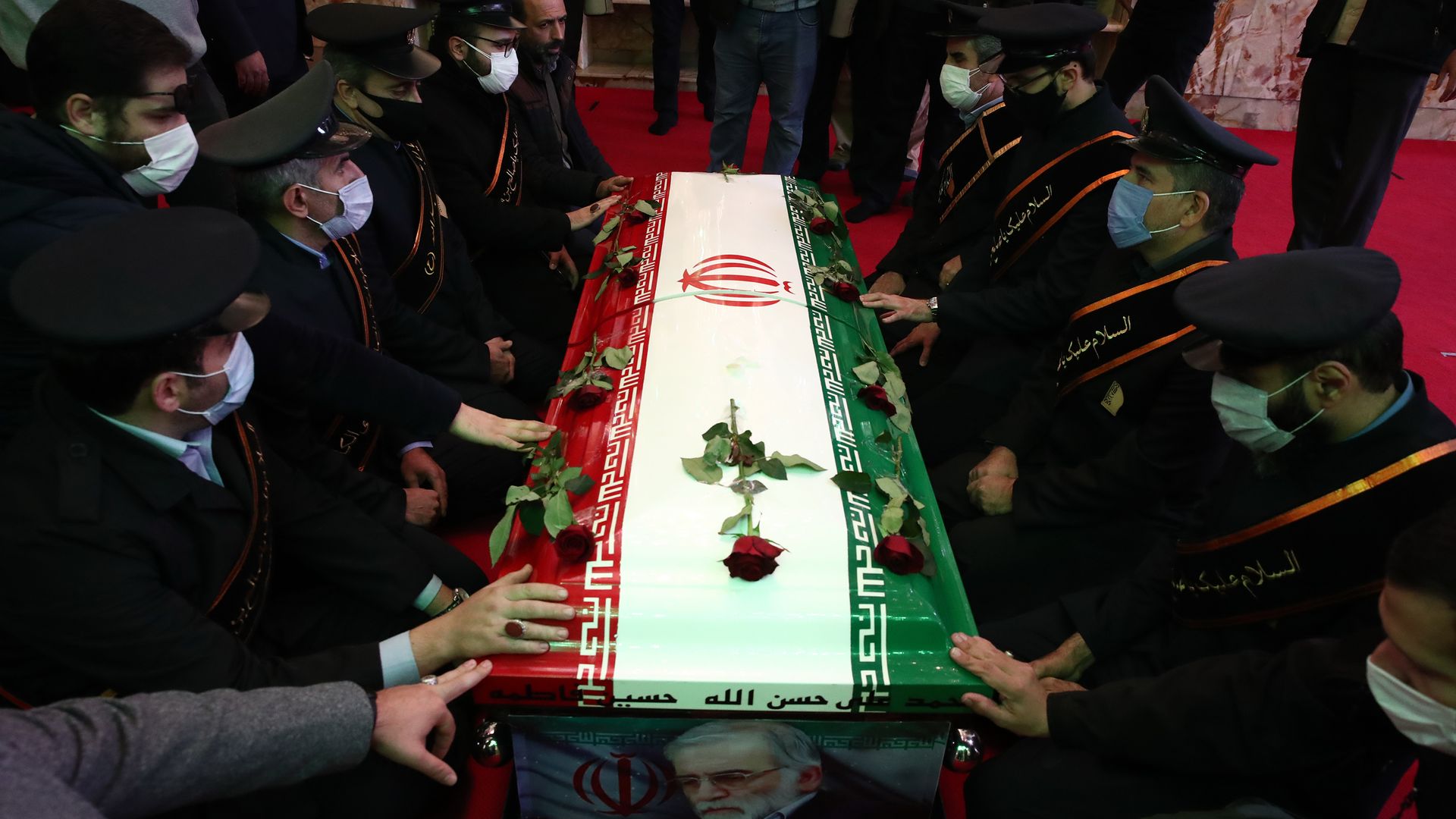Assassination in Iran sets stage for tense final 50 days of Trump
Add Axios as your preferred source to
see more of our stories on Google.

The funeral ceremony in Tehran. Photo: Iranian Defense Ministry via Getty
Iranian leaders are weighing their response to the assassination of Mohsen Fakhrizadeh, known as the father of Iran’s military nuclear program, who was given a state funeral Monday in Tehran.
The big picture: Iran has accused Israel of carrying out Friday’s attack, but senior leaders have suggested that they’ll choose patience over an immediate escalation that could play into the hands of the Israelis and the outgoing Trump administration.
- Still, some sort of Iranian response is likely in the coming weeks — as are further provocations from Israel or the U.S.
Background: The attack on Fakhrizadeh was preceded by a flurry of meetings between anti-Iran leaders — including one involving Secretary of State Mike Pompeo, Israeli Prime Minister Benjamin Netanyahu and Saudi Crown Prince Mohammed bin Salman.
- An increasingly cohesive anti-Iran axis — consisting of Israel and several Gulf countries — has sent clear signals to the incoming Biden administration that it will oppose any attempts to return to the 2015 nuclear deal.
- Meanwhile, the Trump administration has been attempting to block Biden’s path back to the deal by stoking tensions and piling on new sanctions, aided by Israel.
What to watch: Biden says the U.S. will return to the deal (which would require lifting sanctions) if Iran returns to compliance, but Fakhrizadeh’s killing could make a swift pivot to U.S.-Iran diplomacy much more challenging.
Zoom out: With 50 days left between now and Biden’s inauguration, governments across the Middle East are preparing for a post-Trump world.
- Saudi Arabia is seeking a deal to end its three-year blockade of Qatar, hoping to remove one irritant in relations with Biden that are already likely to be tense, per the FT. Jared Kushner is traveling to both countries in an effort to seal such a deal, Axios’ Barak Ravid reports.
- Palestinian leaders have ended a boycott of coordination with Israel as part of a charm offensive to encourage Biden to roll back Trump’s policies, Barak reports.
- And Turkish President Recep Tayyip Erdoğan has sent early signals he’ll attempt to put past friction with Biden aside and seek a pragmatic relationship.
